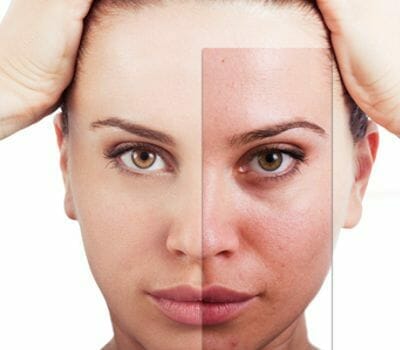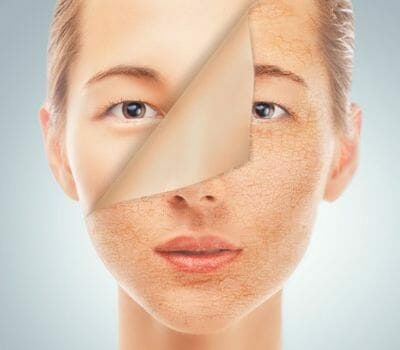Skin Discolorations
The Science of Flaw Correction
Skin Discoloration Revision Procedures
Perfect skin just isn’t a reality for most of us, but for those of us who were either born with skin discolorations or developed them later in life, even having normal skin might seem like an unattainable dream. While we can’t work miracles, our MagnifaSkin clinicians can greatly reduce, or sometimes even completely erase the appearance of these flaws, restoring your confidence and helping you to feel good about your appearance.

Our Discoloration Treatments
We all bruise, but some of us are more susceptible to bruising than others. To make matters worse, if you do bruise easily, it likely also takes longer than average for your bruises to heal. This is of special concern if you have bruising as a result of cosmetic surgery. Obviously you want these areas to heal as quickly as possible.
Hemangiomas (also called Cherry Angiomas) are harmless, benign clumps of blood vessels which form a red bulbous area or nodule on the skin. Common in infants, hemangiomas do sometimes occur later in life. In all cases, they usually resolve themselves, but may leave behind a discolored area of skin or residual extra skin.
Melasma usually affects women between 20 and 50 years of age and appears as brown, tan or blue-gray patches on the face. In pregnant women, the same condition is known as chloasma (or pregnancy mask), and may trigger resultant melasma after pregnancy or make you more susceptible to it, although in most cases chloasma resolves itself after delivery.
Pigmented lesions are brown spots or patches of skin which can appear anywhere on the body. Examples include freckles, moles, age or liver spots, café-au-lait spots and sunspots. While they may be birthmarks, these lesions often develop as we age.
Almost always a birthmark, port wine stains (also known as firemarks) are a reddened area or patch of skin which can appear anywhere on the body. The most well-known example was Russian leader Mikhail Gorbachev, who had a large port wine stain on his forehead and scalp. Without treatment, these marks will persist throughout our lives, growing in proportion to the area they affect.
A common skin condition that often affects people over the age of 30. It is typified by redness of the nose, cheeks, forehead and chin that may come and go, however over time the condition usually worsens, red bumps or tiny pimples may appear in the affected areas and visible blood vessels may also appear.
Known by a number of names such as liver spots, senile lentigo and solar lentigines, sun and age spots are flat brown, gray or black spots on the skin, usually affecting areas continually exposed to the sun, such as the face and hands. They are the result of excess production of melanin, or skin pigment.








